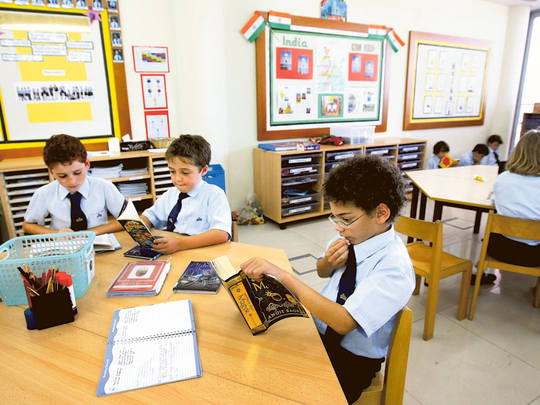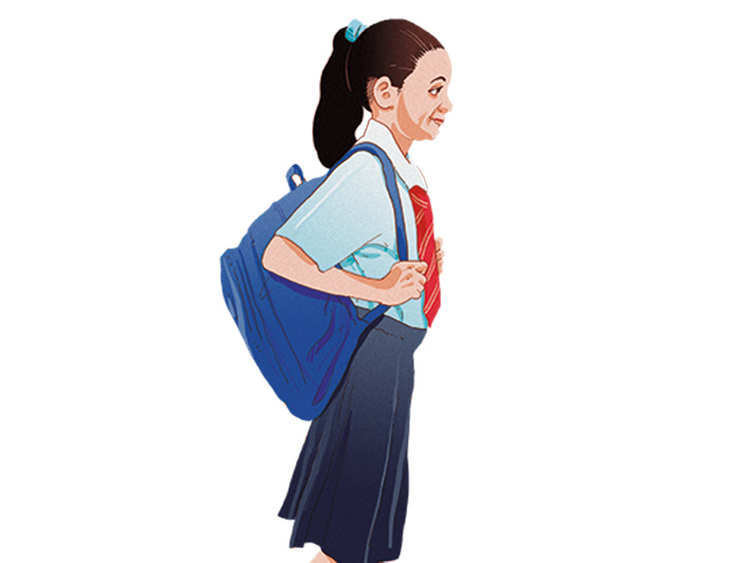
We are living in interesting times, and that shows no sign of changing. We are ready for new solutions. What you so often hear from all sides of an argument is that they are “doing this for our children’s future”. Yet that future is one of the biggest unknowns. Are today’s children going to be doing jobs of which we can’t yet conceive? Will the world still exist in the way we know it, given the looming danger of climate change?
One thing we can be sure of is that it will be the next generation that will face the challenges and carry the responsibility of navigating us through it. That is why it is with education that we need to start our thinking. What is it that children need to experience to be equipped to tackle the challenges of our time?
There are a few things we are teaching our children that will be redundant. First, memorising and regurgitating a lot of information — they have information at their fingertips, quite possibly beamed directly into their brains by the time they become active participants in adult society.
Second, being told what to do — if they are going to have to resolve problems that have never been faced before they need to know how to think creatively, not follow. And, finally, they do not need to be subordinates on the bottom rung of an authority structure that prepares them simply to obey regardless of the orders — they need to be regarded as the experts that they are.
So what does an education system that isn’t entrenched in top-down authority structures look like? What does it take to get to the point where children are entering our adult world with the wisdom and intuition required to navigate the abundance of information and ride the waves of unexpected new realities?
The answer: put children in charge of schools. Allow them to decide when, where, what, how and with whom they learn; have them resolving real problems day in, day out. Democratic education is needed. A system where a child’s right to have a say on matters that affect them (as stated in article 12 of the United Nations Convention on the Rights of the Child) is truly respected.
Such a system would be supported by two pillars. The first is collective decision-making, with children fully participating in governing the school community.
This should go far beyond a school council. There should be a school meeting where one person has one vote — regardless of age — and where school rules, behaviour management and legislation are the matters at stake.
The second is “self-directed discovery”, with children following their inherently inquisitive nature. Young people are curious, they want to make sense of the world, that’s why they ask questions: “why, why, why...” A good education system doesn’t intervene, ask them to stop being this way and tell them what to learn. It puts the trust in the child, thus increasing their motivation and allowing them to learn what they need to.
While teaching at a democratic school, Freie Schule Leipzig, a 10-year-old girl came to me. “I haven’t come to any English lessons all year, because I’ve been busy doing other things I was more interested in. Now I want to learn English, but I don’t want to come to classes because I don’t know many words yet.”
“OK, do you think there are other children who feel like this?” I asked. Yes, she said. “Do you want to find them and decide what kind of English teaching you want?”
Interactive storytelling
Within a week, she had mobilised a full group of students who felt ready — now is my time to take on the English language, because I want to! We organised an intensive English week; through interactive storytelling we were able to cover a term’s worth of curriculum in five days. We repeated this model term after term.
This democratic approach works because firm foundations of mutual respect, equality, dignity, trust and shared responsibility are the compass that navigates daily school life. With these in place in every school we’d have a vast improvement on the current system.
There are impressive efforts across the UK to bring these values into children’s lives, be that through youth centres, Rights Respecting Schools, Co-operative schools or the work of charities such as the Phoenix Education Trust supporting mainstream schools to embed meaningful collaborative cultures. But to reach this utopian vision we need systemic change, and the utopian educationists across Europe know it. In France, where this summer’s European Democratic Education Community Conference will be held, there are more than 15 schools and 30 start-up groups that have emerged in the past two years. The movement is growing.
You may think, “If we had been given that much freedom I would have just done nothing all day... We would have created mayhem.”
Why would you have done nothing? Would it have been a reaction to all those times you were required to do something you just didn’t see the point in?
What would have happened if you had always been autonomous — if you had never been forced? What would have happened if that very first time you thought, “This is stupid, wouldn’t it be better if... ” you had been supported to express that view, listened to and been part of co-creating a solution that had worked for you. Would that have made a difference?
I take you back to that school in Germany, to a seven-year-old boy noticing that something was unfair: “Isn’t it silly that when only just over half the school vote in favour of a rule it passes and then almost half the school have to live with it even though they didn’t want it?” he said.
Point raised, point made to the full school community, point taken seriously, work group containing adults and children of all ages created, discussions had, proposals formed, motions presented, votes taken.
The outcome: when a vote that will affect the whole community is taken, no less than 93 per cent of the school community must take part, and, if the majority/minority margin is within 10 per cent either way the decision needs to be sent back to a working group to be reviewed and for a new more suitable proposal to be developed.
Sound sensible? Wish some of our “grown up” political decisions were made like this? I’d say children are equipped to be involved, I’d trust them to take me through the challenging times ahead. Wouldn’t you?
— Guardian News & Media Ltd
Rachel Roberts is an education consultant, writer, speaker and careers coach. She is an advocate and consultant for democratic education working closely with the European Democratic Education Community.










